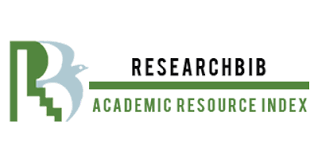A CONTRASTIVE STUDY OF ARTIFICIAL INTELLIGENCE AND HUMAN TRANSLATION BASED ON LEGAL TEXTS
Keywords:
artificial intelligence, translation software, machine translation, human translation, legal translation, Google Translate, Bing, Microsoft Translator, DeepL, Reverso, Systran Translate, and Amazon Translate. Several computer-aided translation (CAT) tools such as Memoq, Trados, Smartcat, Lokalise, Smartling, Crowdin, TextUnited.Abstract
This study thus aimed to examine any remaining contrasts between human and AI translation in the legal field to investigate the potential hypothesis that there is now no difference between human and AI translation. The paper thus also examined concerns about whether the need for human translators will decline in the face of AI development, as well as beginning to assess whether it will ever be possible for those in the legal field to depend only on machine translation.
References
1.Dragoni, M., Donadello, I., & Eccher, C. (2020). Explainable AI meets persuasiveness: Translating reasoning results into behavioral change advice. Artificial Intelligence in Medicine, 105, 101840.
2.Huang, A., Chao, Y., de la Mora Velasco, E., Bilgihan, A., & Wei, W. (2022). When artificial intelligence meets the hospitality and tourism industry: an assessment framework to inform theory and management. Journal of Hospitality and Tourism Insights, 5(5), 1080-1100.
3.Liebling, D. J., Lahav, M., Evans, A., Donsbach, A., Holbrook, J., Smus, B., & Boran, L. (2020, April). Unmet needs and opportunities for mobile translation AI. In Proceedings of the 2020 CHI conference on human factors in computing systems (pp. 1-13).
4.Broussard, M., Diakopoulos, N., Guzman, A. L., Abebe, R., Dupagne, M., & Chuan, C. H. (2019). Artificial intelligence and journalism. Journalism & Mass Communication Quarterly, 96(3), 673-695.







